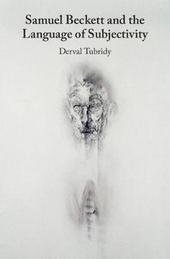
|
Samuel Beckett and the Language of Subjectivity
Hardback
Main Details
Description
Samuel Beckett and the Language of Subjectivity is the first sustained exploration of aporia as a vital, subversive, and productive figure within Beckett's writing as it moves between prose and theatre. Informed by key developments in analytic and continental philosophies of language, Tubridy's fluent analysis demonstrates how Beckett's translations - between languages, genres, bodies, and genders - offer a way out of the impasse outlined in his early aesthetics. The primary modes of the self's extension into the world are linguistic (speaking, listening) and material (engaging with bodies, spaces and objects). Yet what we mean by language has changed in the twenty-first century. Beckett's concern with words must be read through the information economy in which contemporary identities are forged. Derval Tubridy provides the groundwork for new insights on Beckett in terms of the posthuman: the materialist, vitalist and relational subject cathected within differential mechanisms of power.
Author Biography
Derval Tubridy is Senior Lecturer in the Department of English and Comparative Literature at Goldsmiths, University of London. She is co-director of the London Beckett Seminar at the School of Advanced Study, University of London, and Council member of the British Association of Irish Studies. Author of Thomas Kinsella: The Peppercanister Poems (2001), she has published widely on modernism and Irish studies, and has received funding from the Fulbright Commission, the Arts and Humanities Research Council and the British Academy. She works on modern and contemporary literature, performance and the visual arts with a particular focus on the intersections between language, materiality and process.
Reviews'... the book injects new energy into well-rehearsed debates, intervening in conversations on the primacy of gesture and rhythm in Beckett, on the correspondences between his experiments in drama and narrative, and on the irreducible distance between bodily existence and self-relation.' Ruben Borg, Journal of Modern Literature
|